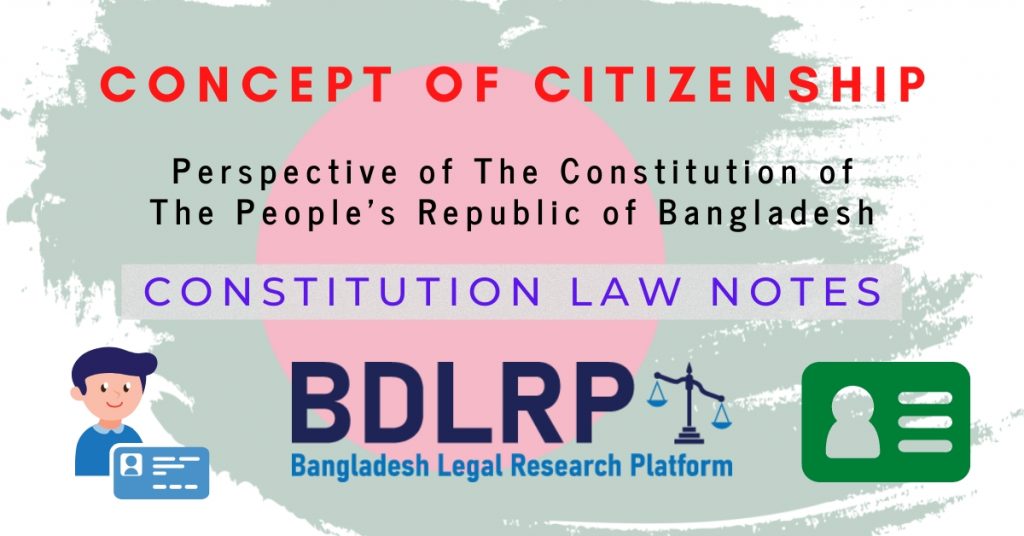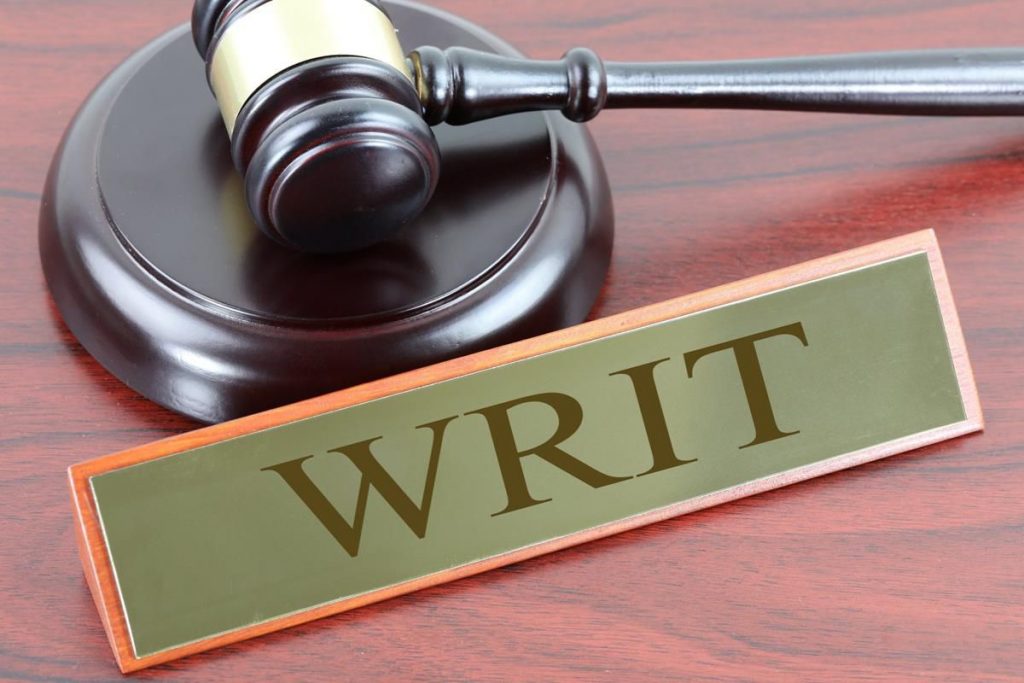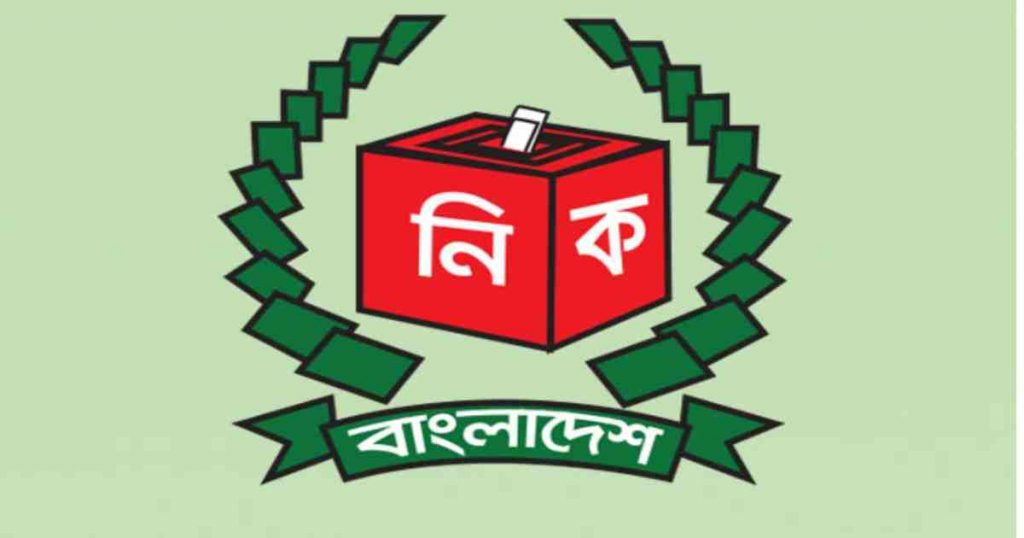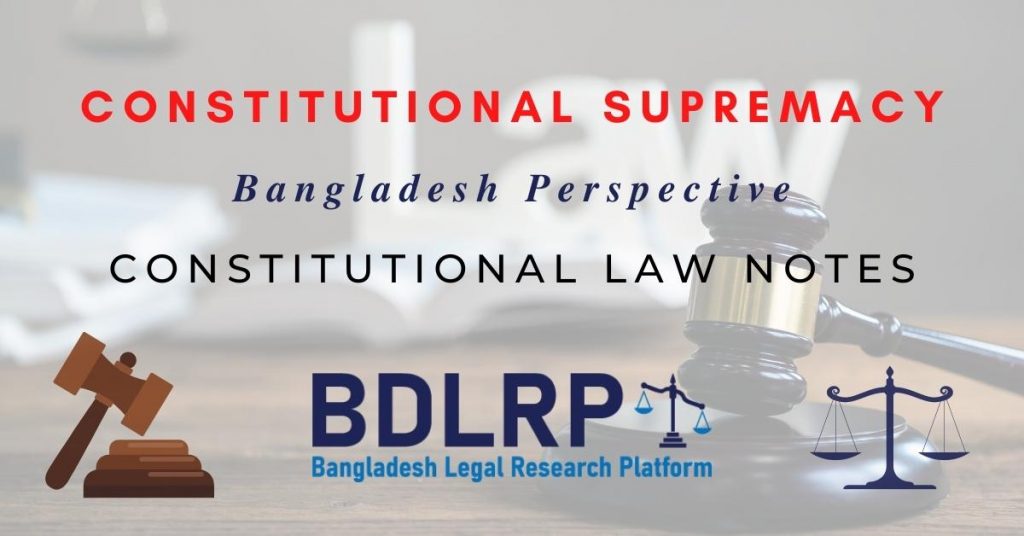Preface
The word “citizen” has come from Greek word “Civis”. Citizen of a state means a person who is born in the state or recognised as a citizen of this state by naturalization. For being a citizen he has some duties to the government of the state which have to be followed by him. Citizen is a person who is a member of a particular country and who has rights because of being born there or because of being given rights, or a peraon who lives in a particular town or city.
???????????: ????????? ?? ??? ???????????? ?? ??????????
Citizenship may be acquired by birth or by naturalization. Article 6 from Part I (The Republic) of the constitution of Bangladesh discusses about citizenship-
1) The citizenship of Bangladesh shall be determined and regulated by law.
2) The people of Bangladesh shall be known as Bangalees as a nation and the citizens of Bangladesh shall be known as Bangladeshis.
Article 6(1) does not define the word “Citizen”, but article 152 does it. Citizen, according to Article 152, means a person who is a citizen of Bangladesh according to the law relating to the citizenship. The laws, mentioned in the article 6(1) and 152, are:
i) Bangladesh Citizenship (Temporary Provisions) Order- 1972 (P.O. No. 149 of 1971)
ii) The Citizenship Act- 1951
????? ?? ????????? ???????????
1. ??????? ?????? ?? ?? ????????: Every person lives in the state is not citizen. Article 2 of the Bangladesh Citizenship (Temporary Provisions) Order- 1972 says- he is a citizen of Bangladesh
i) who or whose father or grandfather was born in the territories now comprised in Bangladesh and who was a permanent resident of such territories on 25 March, 1971, and continues to be so resident; or
ii) who was a permanent resident of the territories now comprised in Bangladesh on the day of 25 March, 1971, and continues to be so resident and is not otherwise disqualified for being a citizen by or under any law for the time being in force.
Case Reference:
★ In the case of “Bangladesh Vs. Professor Golam Azam-1994, 46 DLR (AD) 192″ Justice M.H. Rahman said- “Citizenship may be acquired by birth or by naturalization. A person who is deemed to be a citizen of Bangladesh under article 2 is not required to take any oath of allegiance unless he is elected or appointed to any office mentioned in the Third Schedule of the constitution. A naturalized citizen is, however, required to take oath of allegiance to the Constitution of The People’s Republic of Bangladesh.”
★ In the case of “Govt. of Bangladesh Vs. M.S. Ispahani-1988, 40 DLR (AD) 116″, the main contention of Govt. was that the responded cannot be deemed to be a citizen of Bangladesh within the meaning of the Provisions of Articles 2 and 2A of the President’s Order No. 149 of 1972. This contention was rejected by many judges. Justice Shahabuddin Ahmed, however, said- “Responded does not come under clause (i) of Article 2 but comes under clause (ii) in view of the fact that he was a permanent resident ‘of territories now comprised in Bangladesh on the 25 March, 1971 and continued to be so.’ From before 25 March, 1971, he had been residing in UK, first for study, then for the purpose of professional work. He did not physically continue to reside in Bangladesh but on the strength of Article 2A of the President’s Order No. 149 of 1972, in spite of his residence in UK, he shall be deemed to continue to be permanent resident of Bangladesh.”
2. ??????????? ?? ?????: Section 4 of the Citizenship Act- 1951 says every person born in Bangladesh (not a person whose father is not a citizen of Bangladesh and residing in Bangladesh as a Diplomat of another country or whose father is an enemy alien) and whose father was a Bangladeshi citizen at the time of his birth outside Bangladesh, shall be a citizen of Bangladesh.
3. ??????????? ?? ??????????????: The Government can confer citizenship of any person under section 9 of the Citizenship Act-1951 and such a person is a citizen by naturalization.
??????????
Citizenship is regulated and determined by statue law. Every person, who is living in the state, is not citizen. One is a citizen or not, it fixes up by these laws, i.e. the President’s Order No. 149 of 1972 and the Citizenship Act of 1951.
??????????
1. Cambridge Dictionary
2. An Introduction to The Constitutional Law of Bangladesh: M. Jashim Ali Chowdhury
3. The Constitution of The People’s Republic of Bangladesh with Comments and case-laws: Justice Latifur Rahman
Author: Md. Samiul Alam
Department of Law,
Comilla University.





Comments are closed.